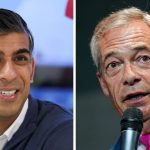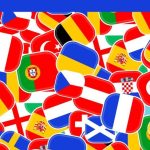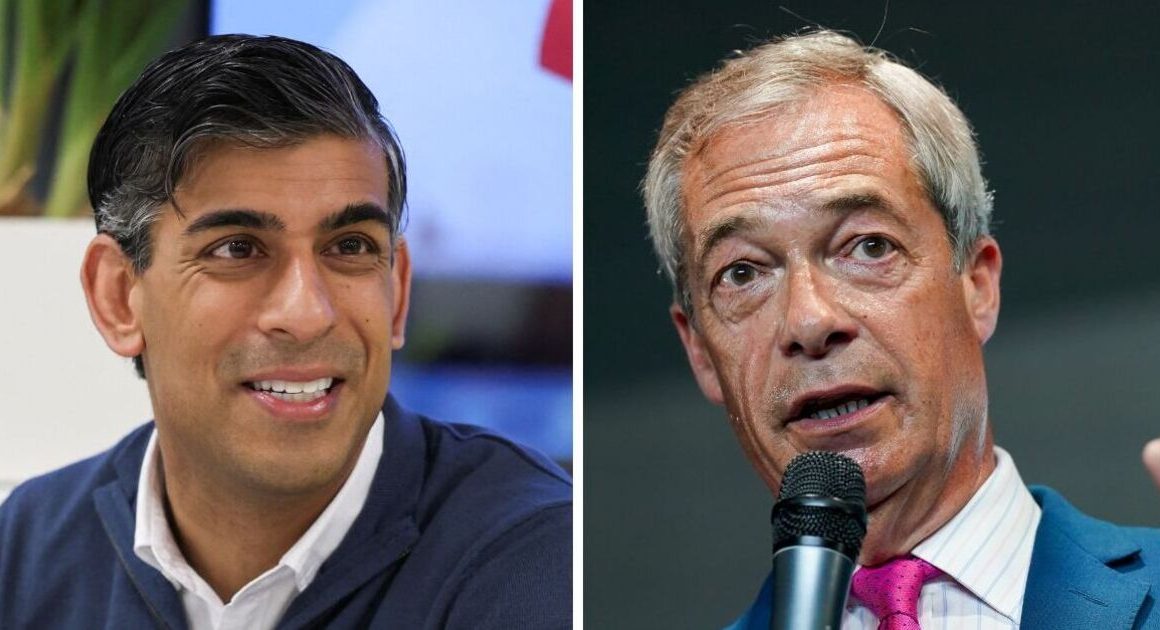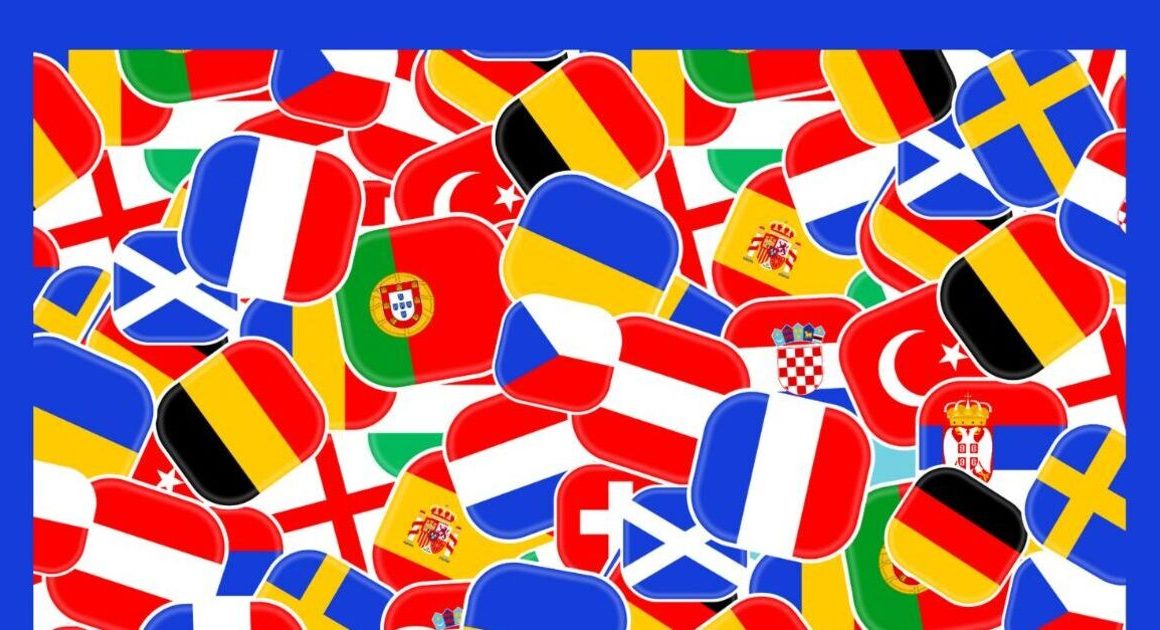Eurovision’s slogan is “United By Music,” but this year’s edition of the singing competition was marked by unprecedented protests.
Non-binary Swiss artist Nemo took home the grand prize with The Code, a song about their journey to embracing their identity — and a stage performance that featured Nemo on a spinning platter.
But beyond the kitschy, glam performances that Eurovision is known for, the competition this year faced boycott calls and allegations of backstage harassment and intimidation. There were also pro-Palestinian and pro-Israel protests in Malmo, Sweden, where the contest was held.
Sam Lo, a Eurovision fan who lives in Ottawa, helps moderate an online fan group for the contest on the Discord chat app.
“This year is definitely way more dramatic and really, really tense,” said Lo, who’s been watching the competition since 2009.

Controversy over Israeli entry
Calls to boycott Eurovision began almost as soon as Israel revealed its initial submission, October Rain. The song was widely viewed as a reference to the Oct. 7 attack on Israel by Hamas.
Israel changed the lyrics and title at the request of Eurovision organizer the European Broadcasting Union (EBU), which insists that the contest is a non-political event.
But that didn’t quell the controversy. Some still demanded that Israel be excluded over its ongoing war in Gaza just as Russia was expelled two years ago following its invasion of Ukraine.
Outside the arena where the competition took place over the course of five days, thousands gathered to protest.
Inside, Eden Golan, Israel’s competitor, was booed by some members of the audience during her performance at a semi-final on Thursday night — and during her Grand Final performance Saturday.
Dean Vuletic, a historian and author who studies Eurovision, was at Saturday’s Grand Final.
He said he noticed some in the audience were cheering loudly in an attempt to drown out the booing and told him they felt sorry for Golan “because of what she had had to go through to represent her country in Eurovision.”
The Eurovision Song Contest is known for often kitschy, eye-catching performances, but this year, it has become a focal point for protest against Israel’s war in Gaza.
Eurovision voting patterns
It’s not the first time war has cast a shadow over Eurovision.
In 2022, when Russia was kicked out of the competition, the audience rallied around Ukraine, which won after a landslide public vote for its entry, Stefania by Kalush Orchestra.
“I think it’s safe to assume that this was a way of the public expressing its support for Ukraine just months after it was invaded,” said Vuletic.

Israel won a significant share of the public vote this year, too. But those points only make up half of a country’s overall score; the other half is awarded by a jury of music experts in each country. Israel did significantly worse in that portion.
Vuletic says that’s likely because the identities of the jurors are public and they may be “reluctant to vote for an entry that is embroiled in some sort of political controversy.”
The influence of politics on Eurovision’s results is well-documented, despite efforts by organizers to keep the contest non-political. Studies dating back to the 1990s have found voting blocs formed by some countries.
8:29Does Israel have a place in the Eurovision Song Contest?
One of the non-european countries participating in the Eurovision Song Contest this year is Israel, which has sparked debate on its place in the competition, espeically amidst the war in Gaza. Journalist and Eurovision expert Karen Fricker talks about the contest’s goal of staying apolitical, and the songs submitted by Israel for the competition: October Rain and Hurricane.
Adrian Kavanagh, an assistant professor of geography at Maynooth University in Ireland, has studied voting patterns at the contest.
He says when it comes to the public vote, voting blocs are largely informed by things like shared language, geographical closeness and a familiarity with the musical acts in question.
“A lot of people in Ireland will have heard of the United Kingdom’s act, Olly Alexander, because obviously we’re next door neighbours.”
But Kavanagh says the jury vote can be different.
“Jury members will not want to be seen to vote in a way that goes against probably the political status quo in the country.”

Artists, broadcasters call for investigations
Nonbinary Irish artist Bambie Thug posted a video to their Instagram story Sunday morning using a filter that placed a Palestinian flag on one cheek and Arabic text on the other.
Bambie Thug has been outspoken about their pro-Palestinian views, performing in the semi-final rehearsals with “Ceasefire now” written on their cheek in Ogham, an ancient script dating back to the 5th century. The EBU asked them to remove it for other performances.
Bambie Thug has asked the EBU to investigate Israeli broadcaster KAN’s commentary, which described their act as Satanic. They have also described their experience at the competition as “horrible.”
“The EBU is not what Eurovision is. F–k the EBU,” Bambie Thug said in a post-finals interview.
Lithuania’s performer Silvester Belt posted on X soon after the contest ended, describing his experience as “traumatic.”
Going after that country, with the crowd being so intense, was one of the worst things I had to go through, I really did the best that I could in this situation…traumatic experience, wish it all ended after the first semi 😓
—@SilvestrasBelte
Eurovoix, a site that reports on Eurovision news, noted that Portugal’s public broadcaster RTP is meeting with the EBU Tuesday to discuss a delay in the publication of their contestant’s final performance. The singer, iolanda, had painted her nails to look like a keffiyeh. She ended her performance by saying, “Peace will prevail.”
Lo, the Eurovision fan from Ottawa, pays close attention to what performers say before and after the event.
“Hearing some of the accounts from the artists that have been coming out the last couple of days, it’s definitely soured the air,” he said. “We kind of have to wonder why they’re having a terrible time.”
Lo says he hopes something changes so that artists can feel more protected.

The politics of a non-political event
The EBU explicitly describes Eurovision as a non-political event and makes efforts to keep politics out of the contest, going so far as to only allow flags from competing countries and the rainbow Pride flag.
Even the flag representing the non-binary community that Nemo carried during the opening ceremony and held as they awaited their final scores was technically forbidden.
Front Burner25:14Eurovision’s charged political history
Vuletic says he’s asked every year if the competition is more political than ever before.
“What I think is amazing, as a historian, is how quickly people forget,” he said, noting that the 2012 competition in Azerbaijan was equally controversial. Security was high and people protested because of the Azerbaijani government’s policies, particularly around press freedom.
This year’s contest marked 50 years since ABBA won in 1974, but Vuletic said that year was also notable for other reasons.
Greece participated for the first time and was ruled by a military dictatorship, the Dutch entrant that year mentioned drug use as the country debated decriminalizing cannabis, and Portugal’s song was used just weeks later to signal the start of a revolution that brought down the country’s dictatorship.

But that doesn’t mean this year hasn’t set precedents.
“For now, at least, this Eurovision will go into the record books as being the Eurovision that had the most, the biggest protests attached,” Vuletic said.
Lo, the Ottawa fan, says that while it would be nice if Eurovision could live up to its “United By Music” slogan, “it’s easier said than done.”








